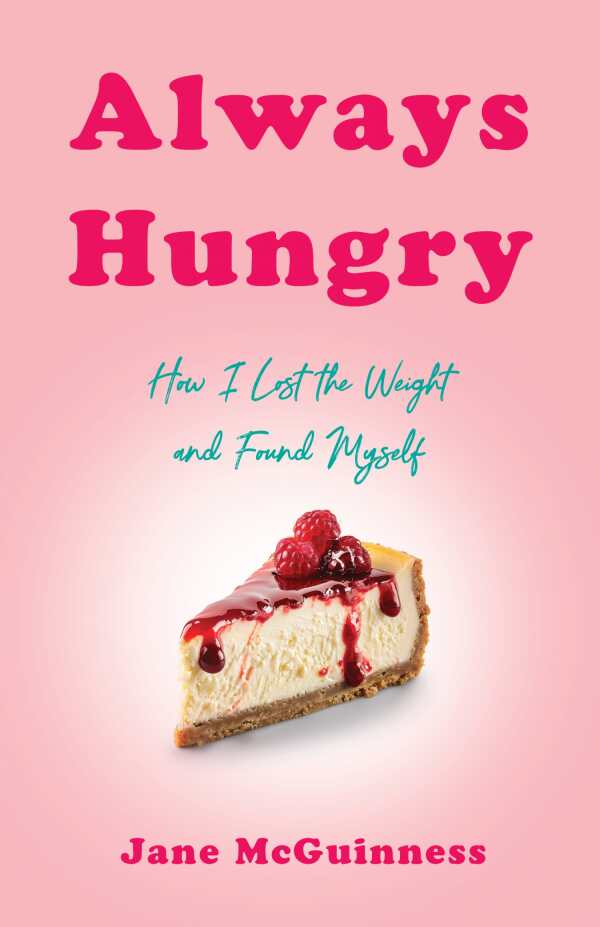Always Hungry
How I Lost the Weight and Found Myself
Handling the tough topics of weight loss, obesity, and disordered eating with respect, Always Hungry is a revealing memoir.
Jane McGuinness’s witty, openhearted memoir Always Hungry is about experiencing weight loss, motherhood, and divorce in a patriarchal, fat-shaming world.
McGuinness, who sought refuge in food for years, attributes her decades of disordered eating to her unstable upbringing and unchecked anxiety. She ate large quantities of baked goods in secret, fainted on an airplane, and once forced herself to vomit. Her disordered eating also had a negative impact on her social life, as she faced insulting barbs from strangers, friends, and family members regarding her appearance and life choices.
The book is self-reflective in handling these memories and the roots of McGuinness’s disordered eating, asserting that food was a scapegoat for what she hungered for most: autonomy, adventure, and acceptance. Indeed, after spending her twenties as an overweight wife and mother, she decided to reshape her life from the inside out. She divorced her husband, embraced single parenting, and launched a career in counseling, all while readjusting her relationship to food. She began to practice moderation, to adopt healthy routines, and to undertake positive habit reformation. Her approach to weight loss is no-nonsense: “Are my pants too tight? Yes/No. Do I want to change this? Yes/No.”
Though its narration is playful and even humorous despite its tough subject matter, the book also sometimes downplays the specifics of McGuinness’s weight-loss experiences in service of its positive tone. Her transformation is attributed to improvements in mental health coupled with portion control and frequent walking; still, while much of the text is ostensibly devoted to concerns about maintaining a healthy weight, weight loss and weight management are relegated to its background. Foregrounded instead are McGuinness’s experiences with divorce, postdivorce dating, and single parenting. Keen insights into how the world treats overweight women as opposed to thin ones amplify such reflections, though, and McGuinness, having moved through the world at both higher and lower weights, is careful in handling them.
Further, though it aims to inspire others who struggle with emotional eating disorders and who are striving to lose weight, the book’s structure is too nonlinear to serve these goals well. It is prone to abrupt changes in subject, and tangents arise with varying results. The mishaps of McGuinness’s accident-prone foreign exchange student, for example, prove less relevant than her discovery of intuitive eating while backpacking through Spain. And the book devotes too much space to concerns regarding men, in particular those with dating profiles, impeding its momentum: “Perhaps I sound like a man hater—I’m not.” It meanders toward its ending, though proffering entertaining and engaging moments throughout.
An uplifting and unfiltered memoir, Always Hungry is about graduating from emotional eating toward unapologetic self-acceptance.
Reviewed by
Hannah Pearson
Disclosure: This article is not an endorsement, but a review. The publisher of this book provided free copies of the book and paid a small fee to have their book reviewed by a professional reviewer. Foreword Reviews and Clarion Reviews make no guarantee that the publisher will receive a positive review. Foreword Magazine, Inc. is disclosing this in accordance with the Federal Trade Commission’s 16 CFR, Part 255.

